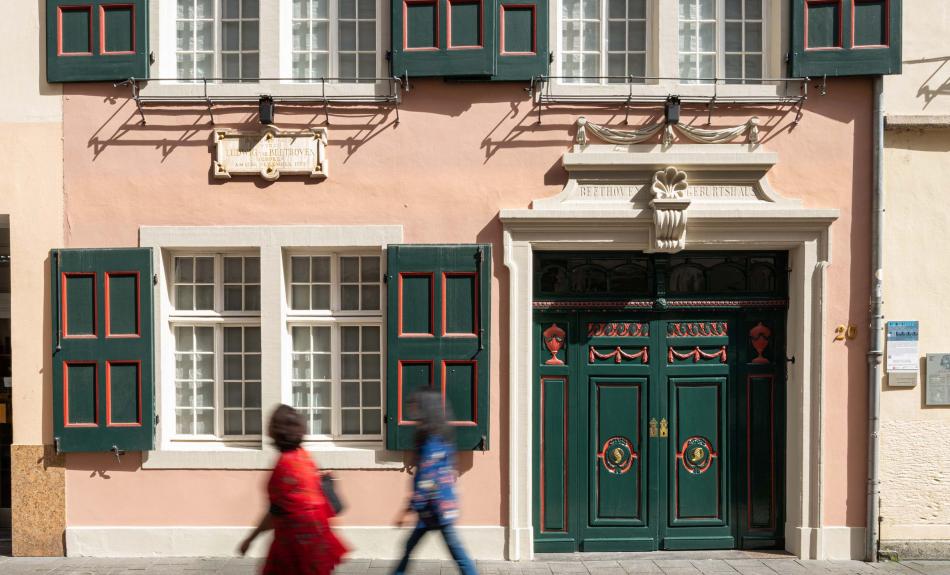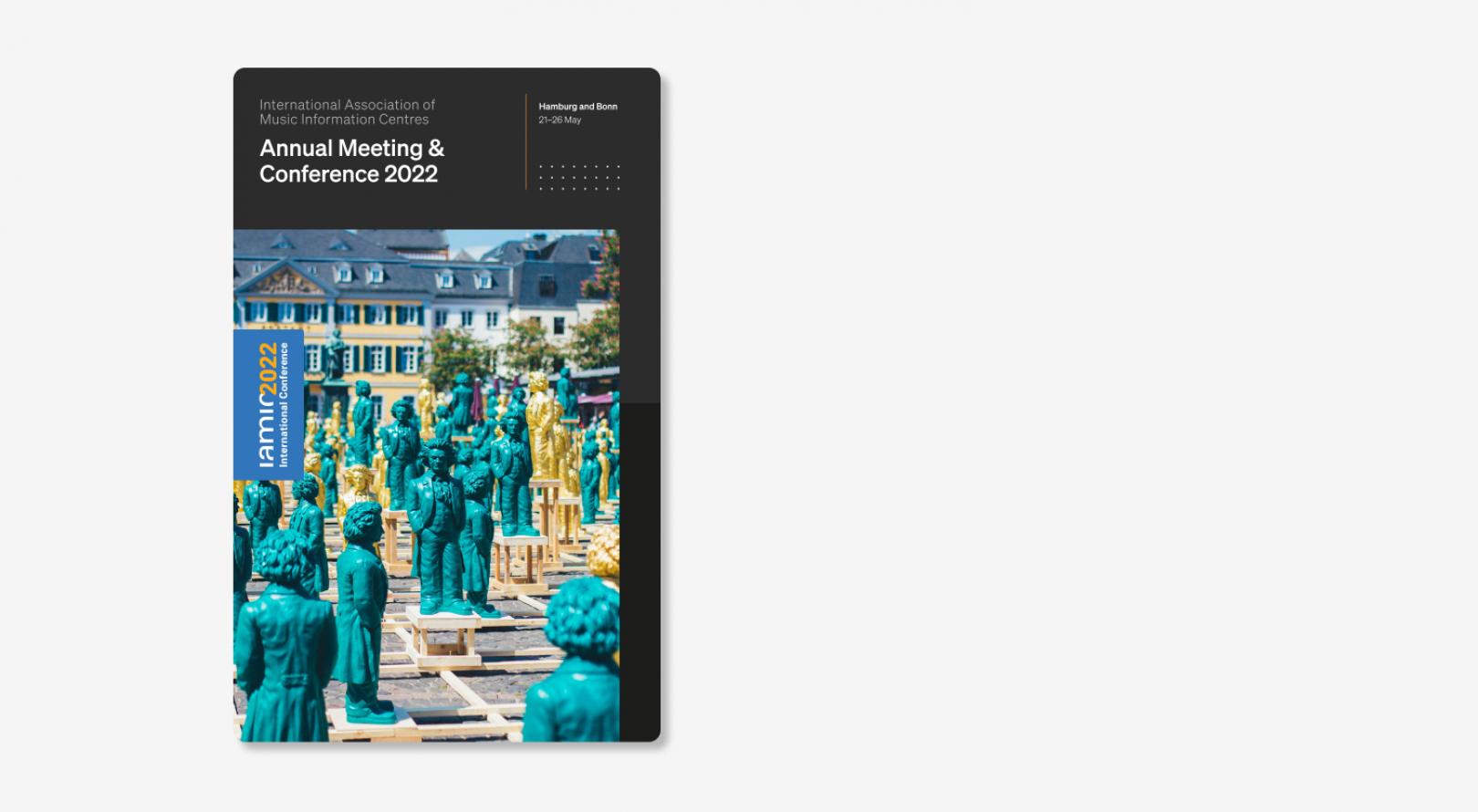Digitisation, climate protection, diversity – these are just a few of the demands that have been confronting players and institutions in musical life for some time. The Covid-19 crisis has brought these issues into the public eye, as if in a burning glass. Organisers, performers and audiences are largely in agreement that much will change – and that much has to change.
Are worldwide concert tours by orchestras still appropriate and responsible in the midst of the climate crisis, and under what conditions can international exchange succeed? What pent-up demand does the music business have in the area of equality, and what possibilities are there for a more diverse classical music business? Do technological developments only offer energy, cost and time savings, or also opportunities for more reach and programmatic innovation? And what traditions must be preserved in the face of all the upheavals of our time?
The International Association of Music Information Centres (IAMIC) and the German Music Information Centre want to explore these questions at a hybrid conference, including four 60-minute panels with expert guests. The panels will focus on the topics of “Orchestras, Ensembles and Programme Planning”, “Contemporary Music and the Promotion of Composers”, “Music Outreach” and “Music Distribution and Copyright”. Guests from concert halls, orchestras, music organisations and music companies are invited as speakers. Each panel will be moderated by a representative of an international music information centre in order to include a non-German perspective. Space for discussion with the audience is provided at the end of each panel.
The event will be held in English. Simultaneous translators will be available.
Programme of the Public Conference Day (Tuesday, 24 May 2022)
09:15 – 09:30
Musical Opening
Ludwig van Beethoven (1770–1827):
String Quartet op. 130
1st Movement: Adagio ma non troppo–Allegro
- Eliot Quartett
09:30 – 09:45
Opening, Greetings
- Martin Maria Krüger (President, German Music Council)
- Ingo Mix (Head of the Directorate-General for Art and Culture Funding, Federal Government Commissioner for Culture and the Media)
- Diana Marsh (President, IAMIC / Chief Executive, Tumu Whakarae SOUNZ Centre for New Zealand Music / Toi te Arapūoru)
09:45 – 10:10
Key Note
Music in the Digital Revolution
Digitisation is the most powerful driver of social change since the invention of the steam engine. It is shaping our everyday lives and our communication. It is changing everything: the media, the economy, even interpersonal relationships. Music, too, in all areas: creation, production, distribution. Music appears as universally available streamable content, and at the same time, in the free world of the internet, hardly as a value. How does this dynamic of transformation affect the music business? Between short-lived innovation rhetoric and fear of change, we have not yet understood the internet. And we are only just beginning to see it.
Speaker:
- Holger Noltze, music journalist and professor of music and the media at the Technical University of Dortmund, reflects on these questions and sets the stage for the topics of the day.
10:15 – 11:15
Panel 1
Behind the Scenes: Orchestras, Ensembles and Programme Planning
What challenges does the traditional concert business face in a globalised world? Music is available almost everywhere and at any time, and competition has intensified – not least due to digitisation. More and more, the public discussion is also about questions such as: how diverse are programmes and teams? Which projects are sustainable in times of climate crisis?
A debate about different approaches to programme and profile formation as well as individuality and economic constraints.
Speakers:
- Frauke Bernds (Programme Director, Philharmonie Cologne)
- Magdalena Ernst (Musician / Chair, Orchestras of Change e. V. / Duisburg Philharmonic Orchestra)
- Steven Walter (Artistic Director, Beethovenfest Bonn)
- Christiane Wiesenfeldt (Professor for Musicology, University of Heidelberg)
Moderator: Susanna Eastburn (Chief Executive, Sound and Music, UK)
11:45 – 12:45
Panel 2
Contemporary Music and the Promotion of Composers
What is the situation of contemporary composers in Germany? What effect or benefit do networks and funding opportunities have, and how does the music reach its audience? A look at contemporary music from an internal and external perspective.
Speakers:
- Christiane Engelbrecht (Managing Director, International Ensemble Modern Academy)
- Gregor Hotz (General Manager, Musikfonds)
- Thomas Schäfer (Director, International Music Institute Darmstadt (IMD) / Artistic Director, Darmstadt Summer Courses)
- Charlotte Seither (Composer / Member of the Supervisory Board, German Society for Musical Performing and Mechanical Reproduction Rights, GEMA)
Moderator: Frank J. Oteri (Composer Advocate, New Music USA)
12:45-14:00 Uhr
Lunch Break
14:00 – 15:00
Panel 3
Music Outreach
What does the audience of the future look like? How do we bring classical and contemporary music to different audiences? What are the goals of music education projects, and what are the current trends and concepts in this regard? What is the role of ideas around “community music”?
Speakers:
- Tobias Bleek (Head of Education, Ruhr Piano Festival)
- Katharina von Radowitz (Managing Director, Netzwerk Junge Ohren/ Network Young Ears, NJO)
- Ekkehard Vogler (Musician / Music educator, MDR ensembles)
Moderator: Agnieszka Cieślak-Krupa (International Project Coordinator,
Polish Music Information Centre)
15:00 – 16:00
Panel 4
Music Distribution and Copyright
After a presentation from Jürgen Brandhorst about copyright, we discuss questions such as: how does copyright influence the distribution of music and its financing? What challenges exist between (free) offers and the remuneration of authors? How established are streaming platforms in the context of classical music? What role do streaming providers play in the development of young artists, and what impact does streaming have on the promotion of artists?
Presentation:
What is the value of creativity? Current questions of author’s rights, copyright and liberty in the world wide web.
- Jürgen Brandhorst (Director, German Society for Musical Performing and Mechanical Reproduction Rights, GEMA)
Speakers (Discussion):
- Jürgen Brandhorst (Director, Society for Musical Performaning and Mechanical Reproduction Rights, GEMA)
- Tilo Gerlach (Managing Director, Collecting Society for Performance Rights, GVL)
- René Houareau (Managing Director Legal & Political Affairs, Bundesverband Musikindustrie)
- Maximilian Merkle (Director Business & Legal Affairs, IDAGIO GmbH)
Moderator: Egīls Šēfers (Director, Latvian Music Information Centre)
16:20 – 16:40
Conclusion
Music and Society
How we deal with music today, how we learn to make music and how we communicate the joy of it, has an influence not only on our personal lives, but also on the society of the future: what do we listen to? How curious and open-minded are we? How responsibly do we act? The Secretary General of the German Music Council with a final contribution on questions of musical education, culture and the role of music in our lives.
Speaker:
- Christian Höppner (Secretary General, German Music Council)
16:40 – 16:50
Musical Conclusion
Traditional Folk Songs
- 5000 Miles


